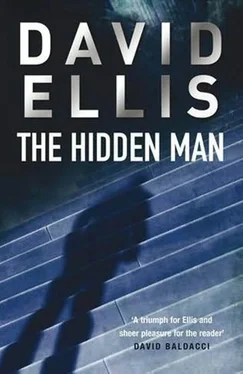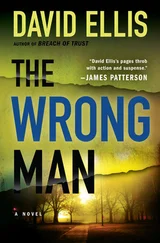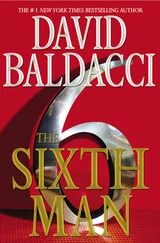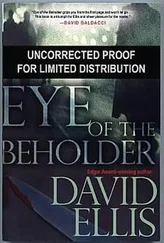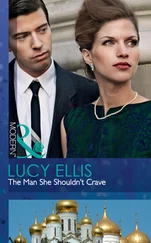I took her hands in mine, and then her arms came around me for a hug. I held her delicately as she repeated my name a few more times. She smelled like flowers. The whole place smelled like flowers.
She took my wrist and led me into her small apartment, where a spread of finger sandwiches and desserts lay on a tray on a coffee table. She’d always been a cook. I remember holidays, particularly, when Mrs. Thomas would bring over cakes and cookies of all assortments and it would strike me, within the narrow confines of a child’s observations, that she had no one else to bake for.
I felt that weird symphony of happiness and sympathy, poignant childhood memories fusing with the pain of realizing they’re gone, that life marches onward, trampling everything in its path. Mrs. Thomas was at that stage where hope meant something new and different. I startled myself with the recognition that hope had meant something different to me, too, four months ago.
I played defense to her questioning for a good hour, like I used to when I’d come home from school and my mother would interrogate me. It was annoying at the time, though I wonder how it would have felt had she not inquired. You know you’re a good parent when your child takes you for granted.
I bobbed and weaved, though I tried to fill in as much of the blanks as I could to satiate Mrs. Thomas, who kept insisting that I call her “Lilly” but I couldn’t, I just couldn’t. She knew my mother had died and she notably did not raise the subject of my father, currently serving time in prison, so we talked much about Pete-I left out the part about him having a couple of drug-related scrapes with the law, or his inability to find a direction to his life-and mostly about me.
There, too, I edited, letting her take joy in my brief turn as a celebrity athlete, and my scholarship to State. She didn’t seem to be aware-or she’d forgotten-that I’d been kicked off the team for fighting with a teammate, after I’d used up all of my goodwill, even in a sport where violence is prized. She knew about law school and asked me about my law practice. She didn’t know the details beyond that, and when she hit the real sore spot, I decided it best to just tell her that “No one’s tied me down yet,” rather than burden her mind with my misfortune, particularly when I was about to raise another tragedy. She beat me to it, asking after Sammy, and however old she may be, her eyes still worked behind those substantial bifocals, and she knew she’d hit on something dark and messy.
She listened carefully, her facial expressions deteriorating further into sadness with each new development I laid on her, a quick intake of air with each twist to the plot. It’s never fun to hear of a murder, even if it was a scumbag child predator like Griffin Perlini. It’s even worse to think of a sweet, if troubled, young boy from the neighborhood pulling the trigger.
“Oh, my.” Her small frame seemed to turn into itself, as if trying to shield her from the memory of what happened to Audrey Cutler. “You know, Jason, every day I pray for forgiveness that I didn’t say something. That I didn’t call out after that man or call your mother or Mary right away.”
“You had no way of knowing.” It was, in fact, much like the conversation I’d had with Tommy Butcher-there’s no crime against running. That was all she’d seen that night that Audrey was abducted.
Mrs. Thomas nibbled at a couple of fingernails, her haunted expression telling me she was reliving the whole thing. “If I could have been more sure,” she said. “I-I just couldn’t be sure. And Lord help me, I couldn’t say something if I wasn’t sure.”
She was talking about the identification. As the only witness to the abduction, Mrs. Thomas had been asked to identify Griffin Perlini in a lineup. And obviously, she’d been unable to do so, or Griffin Perlini might have stood trial. In her mind, then, she’d failed the Cutlers a second time.
“It would have been almost impossible for you to identify him,” I told her. From my trip back to the neighborhood, I’d estimated that Mrs. Thomas was looking at someone running with his back to her, in the middle of the night, from the distance of maybe half a football field.
Detective Carruthers had sent over copies of his files on Audrey’s abduction for my review. I hadn’t had the chance to look through them save for the file on Mrs. Thomas, so I would know what she’d said back then before this visit. In those files was a lineup report indicating that Mrs. Thomas “could not conclusively identify” Griffin Perlini as the man who had taken Audrey.
From my years as both a prosecutor and defense attorney, I knew that cops had a way of taking literary license with their view of events. Could not conclusively identify left an amount of interpretation that could fill an airplane hangar.
“Can you tell me how that happened?” I asked. “The police lineup?”
Mrs. Thomas gathered her sweater, currently around her shoulders, as if to stifle a chill in a room that was anything but drafty.
“I know it’s hard to remember-”
Her eyes shot to mine, surprising me in their swiftness. “Oh, Jason, it’s not hard to remember that . No, no, no.”
She laid it out like I would expect. A couple of suits-a prosecutor and Griffin Perlini’s lawyer-a couple of cops, and Mrs. Thomas, looking through a window into a lineup of, in this case, six male Caucasians holding numbered cards. “I-I told them I didn’t know,” she said. “I couldn’t be sure. He was number two.”
“Griffin Perlini was number two.” I could only imagine how she’d known that. My guess was, Detective Carruthers had scratched his face with two fingers, or maybe crossed his arms and rested a peace sign on his bicep for her to see-something that would escape the notice of Perlini’s defense lawyer. Prosecutors don’t like to think about how witnesses can be coached.
She shook her head, but not in response to me. “He was so-such a small man,” she said.
Perlini was about five-seven and scrawny. So she was right, but I didn’t catch the significance. Or maybe the problem was, I did.
“ Too small?” I asked.
My question seemed to snap her out of the memory. She was silent for a long time. I hated the fact that I was taking this sweet elderly woman back to that time, but I hated even more that I’d pulled her away now. Finally, she looked at me. “I don’t fool myself that my memory is strong enough now,” she said. “A man-a figure-running very fast. I honestly have trouble remembering what I saw.”
I nodded. Accurately summoning memories is tricky, far more difficult than most people realize. It’s not that you don’t recall a vision, it’s that the vision is probably not what you actually saw at the time.
“But you remember what you felt ,” I said.
She nodded solemnly.
Could not conclusively identify . “What did you tell the police, Mrs. Thomas?”
“Oh, Jason.” She crossed a leg with some difficulty, turning her body slightly away from me, a classic defensive response. “The man was running so fast, and he was-he was-”
She leaned forward slightly. She didn’t want to come out and acknowledge the horrible truth that he was cradling little Audrey in his arms, but I got the point.
“He was running fast and he was hunched over,” I said.
“So you can see why it would be hard for me to know.”
Sure. But I didn’t have an answer yet. “Please tell me what you told the police,” I said.
Mrs. Thomas stared out the window of her apartment, her expression now a forced stoicism. “Please tell Peter that I’d love to see him some time, Jason,” she said. “And please, take some of this food with you. I swear I’ll never eat it all.”
Читать дальше
